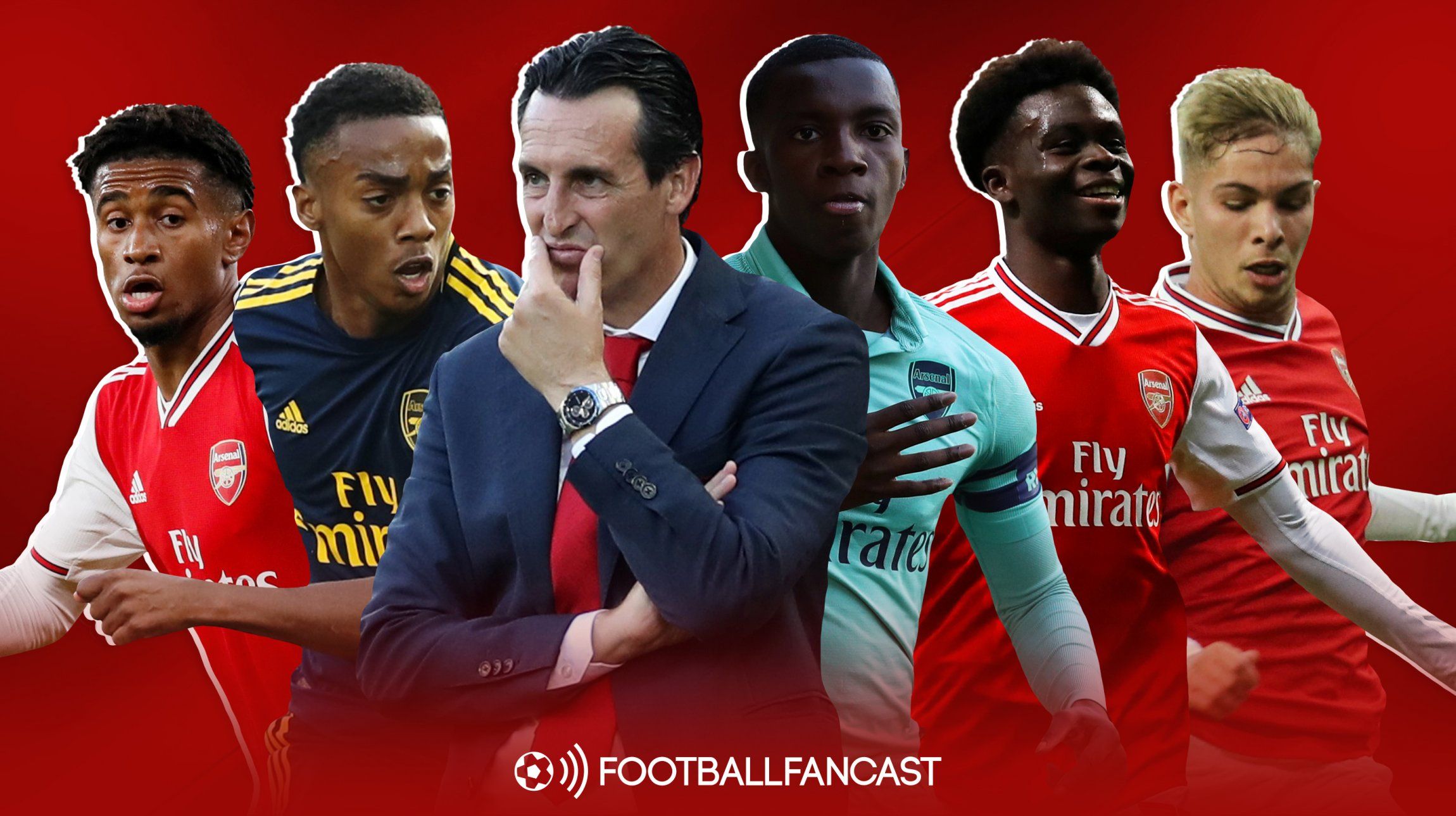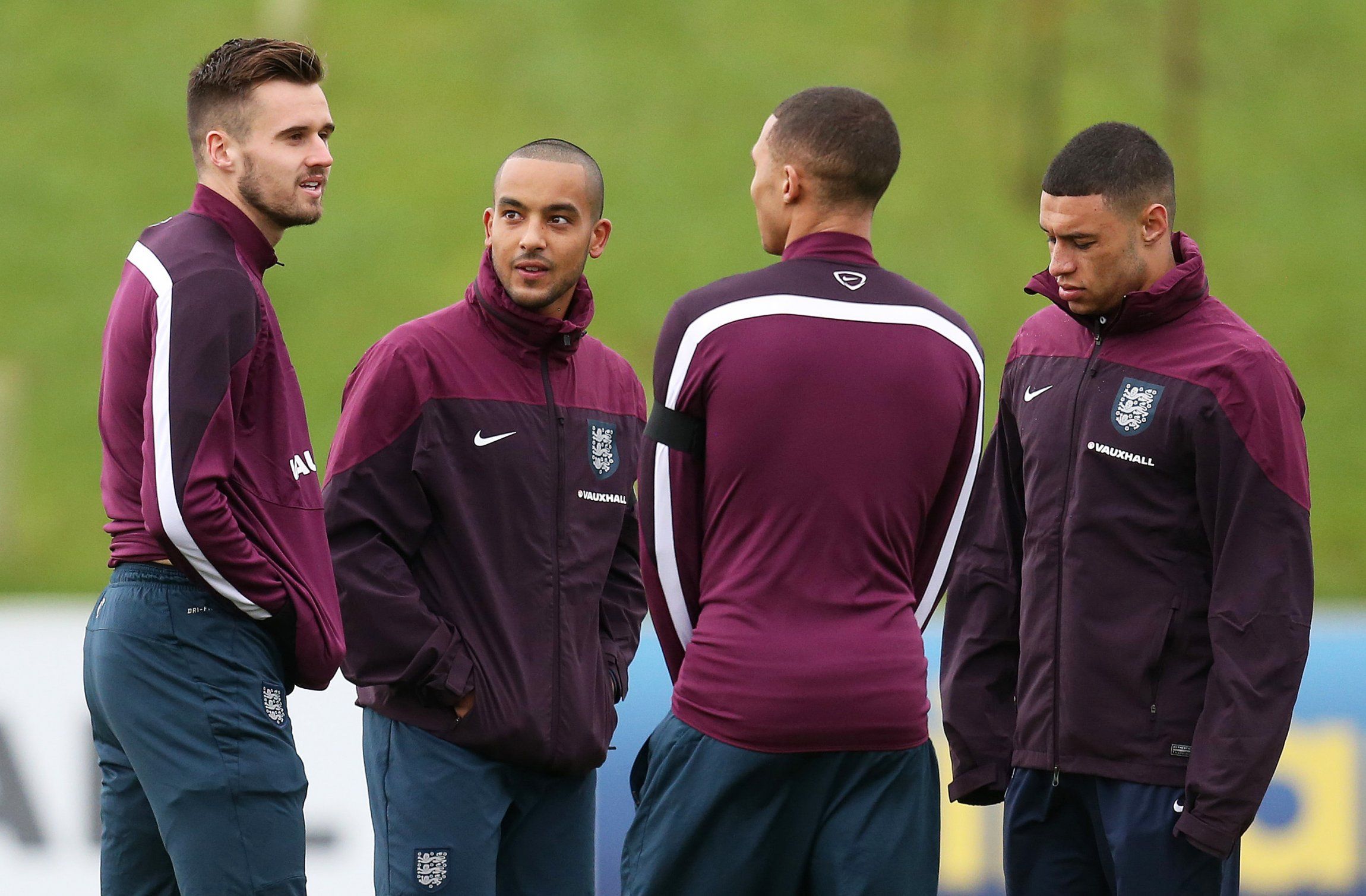One of the most iconic images in Arsenal's recent history - Arsene Wenger proudly standing above a quintet of the Gunners' brightest prospects who had just signed new long-term deals - now appears like a watershed moment for the north London side.
Wenger had been left reeling by a number of high-profile departures over the course of the previous few years, with star names like Cesc Fabregas, Emmanuel Adebayor and Sami Nasri all jumping ship to European and domestic rivals.
But in December 2012, things were supposed to change. Jack Wilshere, Alex Oxlade-Chamberlain, Aaron Ramsey, Kieran Gibbs and Carl Jenkinson all put pen to paper on bumper new deals that would tie them down for five to six years respectively. Theo Walcott would later join that list not long after.
In a picture understandably dominated by PR, Wenger's father-like presence over his young players sent out a message that the club were thinking of the future.
"The plan is to build a team around a strong basis of young players, in order to get them to develop their talent at the club. I’m a strong believer in stability and I believe when you have a core of British players, it’s always easier to keep them together and that’s what we’ll try to achieve." Wenger, December 2012
Fast forward almost seven years later, however, and not a single individual of that famed 'British core' still remain at the Emirates. Jenkinson - rather surprisingly - was the last band member to close the door on that particular chapter of Arsenal's history when he left for Nottingham Forest earlier in the summer.
But when one door closes, another one opens. And, rather promisingly for the Gunners, Unai Emery appears to have arrived as manager at a time when the club look to have a golden generation of young talent on their hands.
The sheer quality, and even quantity, of British prospects that are coming through the club's Hale End academy is quite frankly a rival to Manchester United's 'Class of 92'. Whether they end up coming close to matching those superstars' respective career achievements remains to be seen.
But in Bukayo Saka, Emile Smith Rowe, Eddie Nketiah, Reiss Nelson, Joe Willock and Ainsley Maitland-Niles, Arsenal have a group of players who could quite possibly form more than half the first-team. It would be a remarkable turnaround for a side that was often criticised under Wenger for fielding entire line-ups without a single English player in their ranks.
But talent is no guarantee of success. And that is exactly why the pressure is truly on Emery to get the best out of what he has been blessed with. Speaking after his appointment, former chief executive Ivan Gazidis remarked that the Spanish boss name-checked Maitland-Niles as a player he had immense hopes for during the interviewing process. It was that kind of attention to the club's young starlets that gave the 47-year-old the edge when it came to his rival candidates.
Blooding academy youngsters into the first-team appears to be a trend this season, with both Manchester United and Chelsea embracing that philosophy. However, those policies have been manufactured by virtue of circumstance rather than intention.
Arsenal on the other hand, have no such issues, and that it is exactly why Emery's trust in his young players is so pleasing. 18-year-old Saka has been the highlight of the campaign so far, so much so that he started away at Old Trafford.
His performances have been so impressive that the Gunners boss has opted to take off £72m summer signing Nicolas Pepe in games rather than the teenager, and he has been rewarded with one goal and three assists already.
Wenger's biggest mistake surrounding his British core was that he placed too much faith and responsibility on them to lead the club to success. He essentially placed an albatross around their necks, weighing them down to a point of no escape. He handed them the keys to the Gunners' trophy-laden future, and they ended up fumbling it big time.
Emery must embrace the idea of creating an environment where his academy talent are given the best resources to shine. Bedding them in slowly, using them in their right positions, and adding quality players around them. The squad back in December 2012 still had the likes of Gervinho, Marouane Chamakh and Sebastien Squillaci.
Fortunately for the north Londoners, the side appears to be in better shape than it was back then. That could make all the difference to whether Emery can make this 'British core 2.0' actually work.
The manner in which Wenger's ambition crumbled on itself is telling about the challenge that lies ahead for Emery, but he has the core resources in place to prosper where his predecessor plundered.



